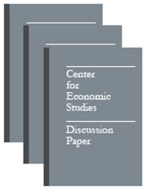Eviction and Poverty in American Cities
Eviction and Poverty in American Cities
Abstract
More than two million U.S. households have an eviction case filed against them each year. Policymakers at the federal, state, and local levels are increasingly pursuing policies to reduce the number of evictions, citing harm to tenants and high public expenditures related to homelessness. We study the consequences of eviction for tenants using newly linked administrative data from two major urban areas: Cook County (which includes Chicago) and New York City. We document that prior to housing court, tenants experience declines in earnings and employment and increases in financial distress and hospital visits. These pre-trends pose a challenge for disentangling correlation and causation. To address this problem, we use an instrumental variables approach based on cases randomly assigned to judges of varying leniency. We find that an eviction order increases homelessness and hospital visits and reduces earnings, durable goods consumption, and access to credit in the first two years. Effects on housing and labor market outcomes are driven by impacts for female and Black tenants. In the longer-run, eviction increases indebtedness and reduces credit scores.
Others in Series
Working Paper
Working Paper
Working Paper




